International
Mexico announces reforms against “external interference”, after the US designated the cartels as terrorists
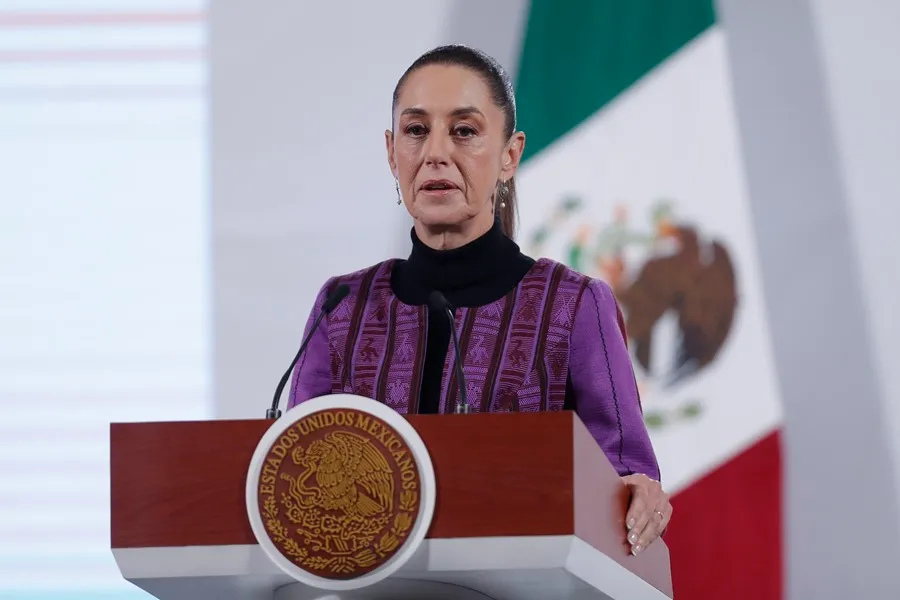
Mexican President Claudia Sheinbaum announced on Thursday two reforms to the Constitution against “external interference” and to impose the “most severe penalty” on foreigners who intervene in Mexico after the United States declared six drug trafficking cartels terrorists.
In addition, the president reaffirmed in her morning conference that the Ministry of Foreign Affairs (SRE) will expand its lawsuit against manufacturers and sellers of weapons in the United States to accuse them of accomplices in terrorism after this classification.
“What we want to make clear in the face of this designation is that we do not negotiate sovereignty, this cannot be an opportunity on the part of the US to invade our sovereignty, so they can give them the name they decide, but with Mexico it is collaboration and coordination, never subordination, not interference and less invasion,” he said.
Sheinbaum asked that “it be clear” that “there is no interference, there is no violation of sovereignty” despite the fact that the US State Department considers from now on the Sinaloa, Jalisco Nueva Generación (CJNG), the Gulf, the Northeast, the New Michoacana Family and the United Cartels as terrorists.
“Both countries want to fight organized crime groups that commit illegal acts in both countries, and there we are working very well on coordination, but we have to guarantee that it is under collaboration and coordination, never violating Mexico’s sovereignty in any way,” he said.
The change to article 40 of the Constitution will reinforce that “the people of Mexico under no circumstances will accept interventions, intrusions or any other act from abroad that is detrimental to the integrity, independence and sovereignty of the Nation,” said the president.
This includes “coups d’état, interference in elections or the violation of Mexican territory, be it by land, water, sea or airspace.”
“Nor will he consent to any intervention in investigation and prosecution without the authorization and express collaboration of the Mexican State, within the framework of the applicable laws,” according to the head of the Executive.
Meanwhile, article 19 will warn that “any foreigner who carries out activities outside the law, linked” to these interferences, “will be imposed the most severe punishment possible, as well as unofficial preventive detention.”
After the appointment, the president raised her claims to the United States arms industry, the origin of almost three out of four weapons used by organized crime in Mexico, according to a report by the Department of Justice in January.
The reform to article 19 also proposes that “any national or foreign national linked in the manufacture, distribution, alienation, transfer or internationalization to national territory in an illicit manner of weapons” shall be “imposed the most severe possible penalty”.
While the Foreign Ministry will expand the lawsuit it filed during the Government of Andrés Manuel López Obrador (2018-2024) against American manufacturers and sellers of weapons, which it accuses of knowingly selling these supplies to cartels in Mexico.
“Given this appointment, there must be a link between those who sell weapons to these criminal groups that today have been cataloged with this name by the US Government, so there will be an expansion of this demand for complicity of those who sell weapons that are introduced” to Mexico, he said.
International
Colombia: Search continues for missing limb of italian scientist found dismembered

Rescue teams and Colombian authorities continued their search on Tuesday for the missing left leg of Italian biologist Alessandro Coatti, whose dismembered body was found in the Caribbean city of Santa Marta.
Coatti, 42, was a molecular biologist who had been traveling through South America after working for eight years at the Royal Society of Biology (RSB) in London.
He had been staying in a hotel in Santa Marta since April 3 and was later reported missing. His dismembered body began to be discovered on April 6, when parts were found inside a suitcase abandoned near a football stadium in an area known as Bureche.
“We’re conducting the search along the riverbanks and in the water to identify possible spots where, due to the river’s current, the missing left leg might be located,” Karlotz Omaña García, director of the Magdalena Civil Defense, told The Associated Press. Despite covering a 500-meter radius, the limb was not found.
Authorities have not named any suspects or shared possible motives. A reward of more than $11,000 has been offered for information leading to those responsible for the foreign scientist’s murder.
Police continue to reconstruct Coatti’s final movements. According to Colonel Jaime Ríos, head of the Santa Marta Metropolitan Police, the Italian biologist arrived in Colombia in January and had visited several locations, including Medellín, before traveling to Santa Marta.
Security footage shows Coatti was in downtown Santa Marta the night before his body was found, the colonel added.
Santa Marta, a popular Caribbean tourist destination, is known for its clear beaches. Police believe Coatti may also have visited Tayrona Park, a protected coastal area located about 34 kilometers (21 miles) from the city center.
International
MPV Denounces Electoral Blockade as Secretary-General is Disqualified for May Elections
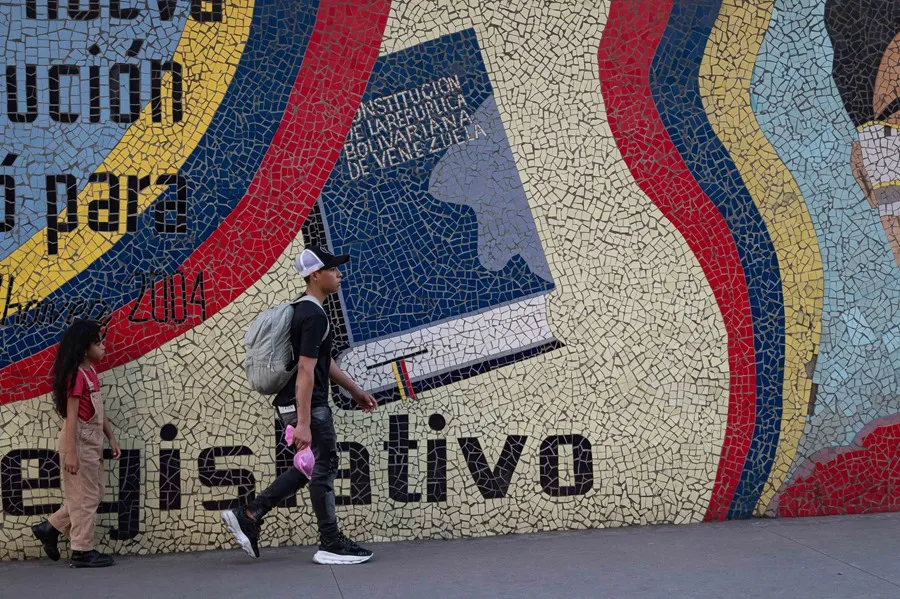
The anti-Chavista party Movement for Venezuela (MPV) denounced on Monday that it was “prevented” from submitting its candidates for the regional and legislative elections on May 25, elections rejected by opposition leaders Edmundo González Urrutia and María Corina Machado.
“MPV, being an active and recognized party in the National Electoral Council (CNE), was prevented from submitting candidates for the current electoral process,” stated the political group through a communiqué on X.
Additionally, the group denounced that its Secretary-General, Simón Calzadilla, was “suddenly disqualified,” as the opposition leader warned last Friday. He also explained that he attempted to access the CNE’s automated candidate submission system but, as he added, the portal showed that he was not authorized to create a user and submit the MPV candidates.
For the party, its “strong decision” to participate in the May elections “highlighted the true nature of this electoral process,” which it described as “extremely flawed.”
International
Maduro Plans Major Workers’ March on May 1st to Defend Venezuela’s Freedom
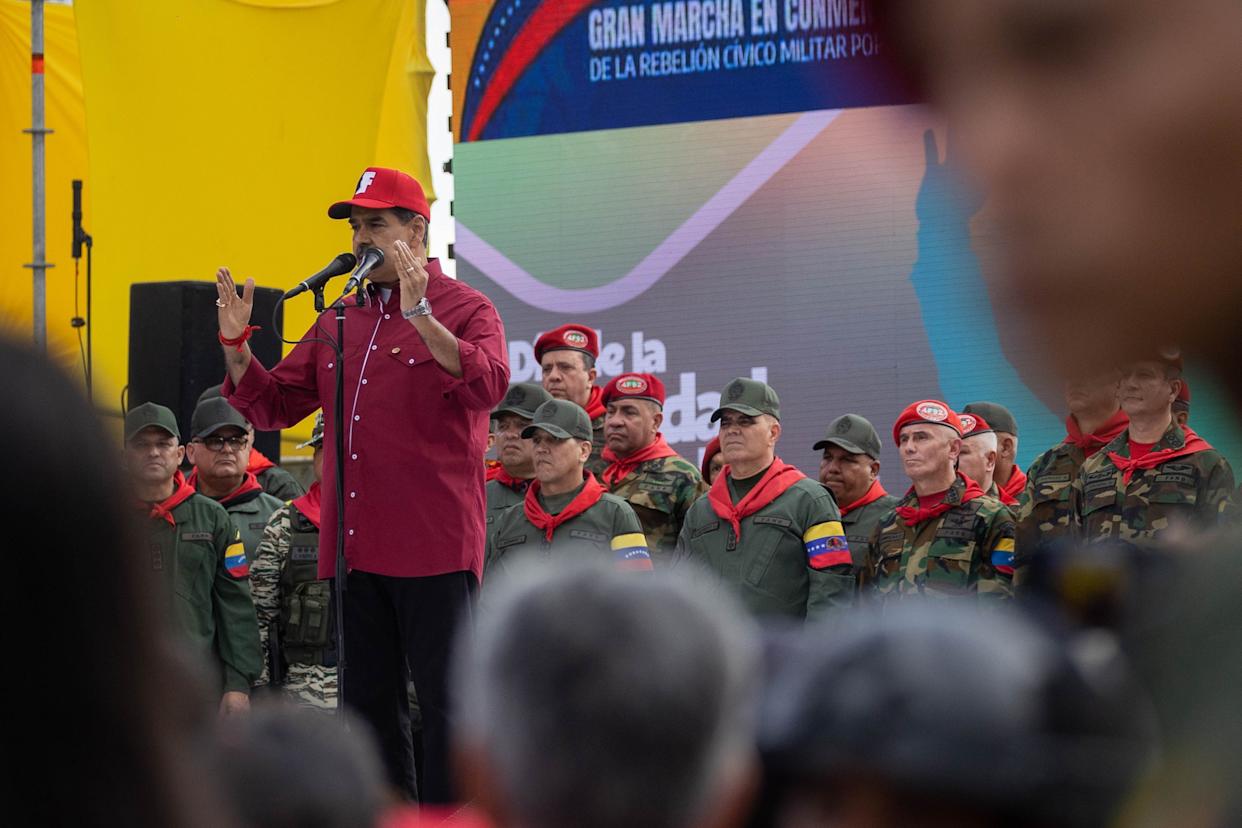
Nicolás Maduro, who swore in for a third term in January following his controversial re-election, called on Monday for the “working class” and the “armed people” to gather for a concentration on May 1st for peace, as part of the celebration of International Workers’ Day.
“Let’s have a powerful march of the working class, the combat bodies, and the Bolivarian National Militia in all the cities of the country, from end to end, working class and armed people in the streets shouting for peace,” said the chavista leader in a broadcast on the state channel Venezolana de Televisión (VTV), surrounded by military authorities.
He also stated that Venezuela is more armed than “ever” to “defend the sacred dream of a free homeland, the sacred soil of a heroic land, Venezuela.”
Maduro called on all military personnel to “stay in shape” with a “deployment capacity” and also to have “a very clear view of the entire national territory.”
-
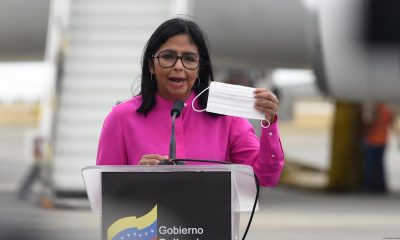
 International3 days ago
International3 days agoVenezuela accuses Guyana of “warlike intentions” after UK defense deal
-

 Central America4 days ago
Central America4 days agoSpanish Ex-Congresswoman Calls for ‘Bukele-Style’ Security Policies in Europe
-
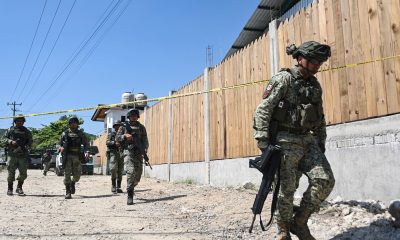
 International4 days ago
International4 days agoTrump Authorizes Military to Take Control of Federal Land Along U.S.-Mexico Border
-

 International3 days ago
International3 days agoNightclub Collapse in Dominican Republic Claims 226 Lives
-

 Central America2 days ago
Central America2 days agoHonduran Police Offer $135K for Tips Leading to the Arrest of Romeo Vásquez
-

 International2 days ago
International2 days agoMaduro Plans Major Workers’ March on May 1st to Defend Venezuela’s Freedom
-

 Central America18 hours ago
Central America18 hours agoPetro questions Ecuador’s vote, cites reports of military control and arrests
-

 International2 days ago
International2 days agoMPV Denounces Electoral Blockade as Secretary-General is Disqualified for May Elections
-

 International18 hours ago
International18 hours agoColombia: Search continues for missing limb of italian scientist found dismembered















